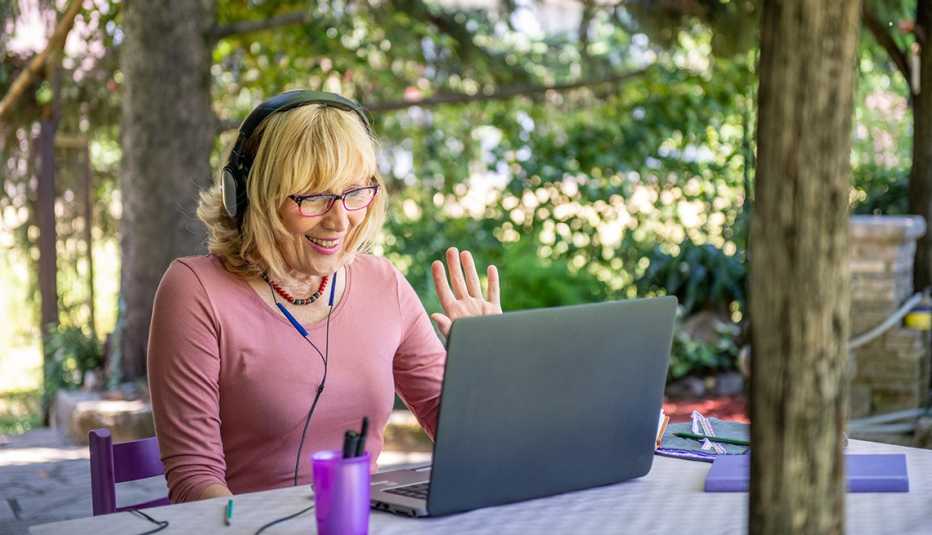Staying Fit


Tami Kelley admits she's not technology savvy, but she didn't want her lack of digital skills to interfere with her connection to her 5-year-old grandson, Horatio.
Because Kelley, 58, lives in Cincinnati and Horatio lives in Vergennes, Vermont, the pandemic is keeping them apart more than usual and video chatting now plays an important role in their relationship. But to successfully connect, Kelley had to fight through a computer video system that quit working, a cellphone that refused to connect to FaceTime and the challenge of making those video chats feel engaging to Horatio.


AARP Membership— $12 for your first year when you sign up for Automatic Renewal
Get instant access to members-only products and hundreds of discounts, a free second membership, and a subscription to AARP the Magazine.
The coronavirus pandemic has separated many families celebrating Grandparents Day on Sept. 13. That separation means technologies like Zoom and FaceTime are the way many grandparents and grandchildren interact. But sometimes those exchanges can feel awkward, or there's dead air, or grandparents struggle with digital tools.
"I'm technologically illiterate,” says Kelley, a retired kindergarten teacher. But with some help from her daughter, Kelley and husband Dave, 54, are now able to connect daily with their favorite kindergartner. It was worth the headache. “This is our special time,” she says.
For Kelley's daughter Miranda Peters, those video chats are also important. Peters and her husband are often called into virtual meetings at the same time while they work from home. The grandparents’ video calls have become an essential form of virtual babysitting.
Find ways to overcome technophobia
Many grandparents — like lots of people — find video calling intimidating. A 2014 study in the Journal of the International Society for Gerontechnology found that 24 percent of older respondents reported being afraid to use new devices. For those who aren't overwhelmed by the technology, figuring out how to keep a child's attention can be challenging.
That's why Shelby Hoefling, a wellness coach and yoga teacher based in Falls Church, Virginia, wrote the children's book Grandma's in the Phone about getting the most out of video chat apps. The book was inspired by Hoefling's calls with her 95-year-old grandmother, Patricia Hoefling, who lives in Boiling Springs, Pennsylvania.

































































More on Home and Family
Grandparent's Guide to Helping Students Succeed With Virtual Education
How to assist your grandchildren with remote learning during the pandemic10 TV Shows You Should Watch So You Can Talk About Them With Your Grandkids
Let's just say it may be time to get that Hulu subscriptionGrandparents Play Starring Role in Multigenerational Home Life
New coronavirus living situations mean older relatives helping with remote learning, child care